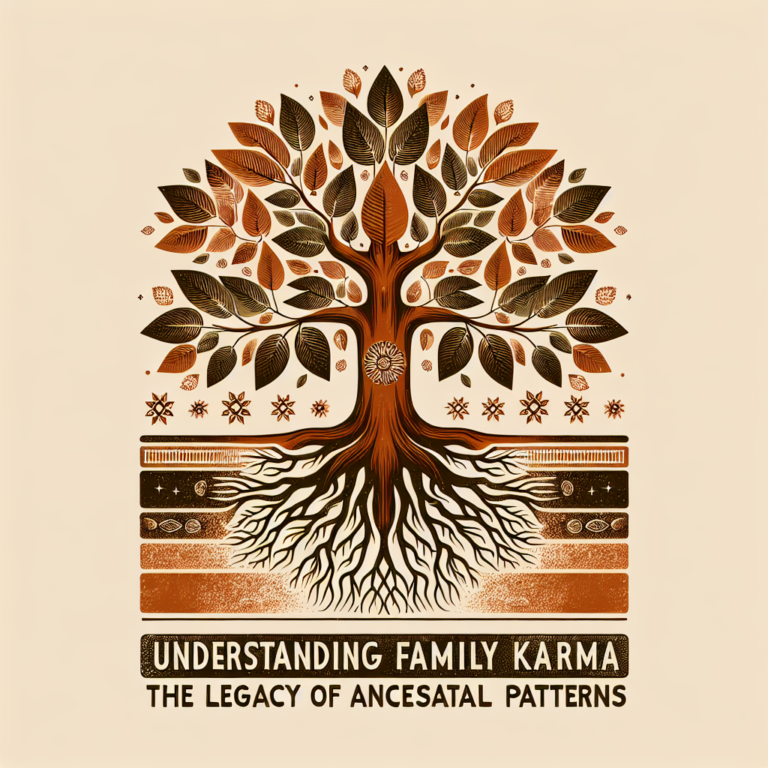Introduction
Karma is a term widely used in various contexts, often misunderstood or misrepresented in popular culture. It originates from ancient Indian religions and has migrated into many aspects of modern spirituality, philosophy, and even casual conversation.
This article aims to provide a comprehensive exploration of the concept of karma—what it is, its origins, how it is commonly perceived, and the misconceptions that often surround it.
Understanding Karma: The Basics
At its core, karma is the principle of cause and effect, where an individual’s actions can lead to corresponding consequences in this life or future lives. Derived from the Sanskrit word ‘karman’, which means ‘action’ or ‘deed’, karma is fundamentally about responsibility and accountability.
Karma can be broken down into three categories:
- Sanchita Karma: This is the accumulation of all past actions. It represents the total karma that an individual has accrued over their existence.
- Prarabdha Karma: This refers to that portion of Sanchita karma that is responsible for the current life and circumstances one is experiencing. It is the karma that is ready to manifest.
- Aagami Karma: This denotes the karma that one is currently creating through their actions. It reflects how choices made in the present will affect the future.
The Philosophical Underpinnings of Karma
The philosophy of karma is deeply entrenched in the doctrines of Hinduism, Buddhism, Jainism, and Sikhism. Each tradition interprets karma slightly differently, yet the essence remains largely the same. Understanding these nuances can provide greater clarity on the concept.
Karma in Hinduism
In Hinduism, karma is intricately linked to the concept of reincarnation. The belief is that one’s deeds in past lives directly influence their current existence. Good karma might lead to a favorable rebirth, while bad karma could result in a less favorable one.
Karma in Buddhism
Buddhist teachings also assert that karma plays a significant role in the cycle of life, death, and rebirth (samsara). However, Buddhism places a stronger emphasis on intentions—what one intends behind their actions often plays a critical role in the karmic consequences.
Karma in Jainism and Sikhism
Jainism elaborates on karma as a physical substance that attaches to the soul, impacting its journey towards liberation (moksha). Sikhism, while less rigid in its delineation of karma, recognizes it as essential in understanding divine justice but emphasizes God’s grace as paramount for salvation.
Karma in Popular Culture
In contemporary society, karma has evolved into a more generalized concept, often used colloquially to describe the idea that what goes around comes around. This simplification has led to misunderstandings, where karma is equated with petty notions of justice and retaliation rather than a profound spiritual principle.
Movies, books, and social media have propagated this diluted understanding, leading many to believe that karma functions almost as a cosmic balance sheet, meticulously recording every minor transgression and rewarding every small act of kindness.
What Karma Isn’t
To truly understand karma, it is essential to identify what it is not. Several prevalent misconceptions about karma can detract from its genuine spiritual significance.
Karma Is Not Immediate
One of the most misleading ideas is that karma manifests immediately. While the principle does suggest that actions lead to outcomes, it can take time—often lifetimes—for the effects of certain actions to be felt.
Karma Is Not Punitive
Karma is not about punishment or retribution. This is a critical misunderstanding. Instead, karma reflects the natural consequences of actions. It encourages personal growth and self-awareness rather than inciting fear.
Karma Is Not Fate
Karma does not imply that individuals are helplessly bound by their past actions. While one’s karma can inform current experiences, individuals are still capable of making choices that can lead to new karmic consequences. This choice serves as an essential point: karma doesn’t negate free will.
Karma Is Not Limited to Bad Actions
People often associate karma only with negative actions. However, good deeds accrue positive karma as well. It’s crucial to recognize that karma includes both sides of the spectrum—good and bad actions yield corresponding rewards or consequences.
The Role of Intention in Karma
One of the most significant factors in karma is intention. In Buddhism, for instance, it is not just the nature of the action that matters, but the intent behind it. Good intentions lead to positive karma, regardless of the actions’ immediate consequences. Conversely, actions performed with harmful intent can negate any positive aspects of the deed.
Examples of Intention in Karma
Consider two individuals who perform a charitable act, such as donating money to a homeless shelter. One does so out of genuine concern for others, wanting to make a positive impact on someone’s life. The other may contribute solely to enhance their public image or for personal gain. Although both actions are the same outwardly, the intentions behind them result in different karmic repercussions.
Practical Applications of Karma in Daily Life
Understanding karma can influence our daily choices and interactions. By recognizing the impact of our actions, we can foster a more mindful approach to life. Here are some practical ways to incorporate the concept of karma into daily living:
Mindfulness in Actions
Being aware of your actions can significantly affect your karmic journey. Mindfulness practices, such as meditation and reflection, can help you stay aware of your intentions and their potential impacts.
Kindness and Compassion
Engaging in compassionate actions, showing kindness to others, and practicing empathy can cultivate good karma. This demonstrates a commitment to contributing positively to the world around you, further enhancing your life experience.
Forgiveness and Letting Go
Holding onto grudges or resentment can create negative karma. Practicing forgiveness helps to release the emotional burden and allows individuals to move forward positively. It demonstrates an understanding that one can transcend past actions, both their own and others.
Conclusion
In summary, karma is a multifaceted concept that transcends simple interpretations of good and bad, justice and punishment. It embodies a deeper understanding of the interconnectedness of actions, thoughts, and intentions, and their ripple effects across time and existence.
Ultimately, karma encourages us to approach life with mindfulness and compassion. By being aware of the impact of our actions and striving to cultivate good intentions, we can influence our own lives and the lives of others, creating a more harmonious existence.
FAQs
What is the main principle of karma?
The main principle of karma is the notion of cause and effect. It suggests that every action has consequences that may manifest in this life or future lives.
Is karma the same as fate?
No, karma is not the same as fate. While karma reflects the results of past actions, individuals still have free will to make choices that can create new karma.
Can karma be changed or altered?
Yes, karma can be changed. By making conscious choices in the present and embodying positive intentions and actions, individuals can reshape their future karmic consequences.
Is karma only about negative actions?
No, karma encompasses both positive and negative actions. Good deeds result in positive karma, while harmful actions can create negative karma.
How can I use the concept of karma in my daily life?
To incorporate karma into daily life, practice mindfulness, show kindness and compassion towards others, and work towards forgiveness and letting go of negative emotions.
Of course! What would you like the prompt to be about? You can specify a theme, topic, or type of writing you have in mind, and I’ll be happy to help!, #Karma #Isnt, #Karma #Isnt, 1736719509, karma-what-it-is-and-what-it-isnt





